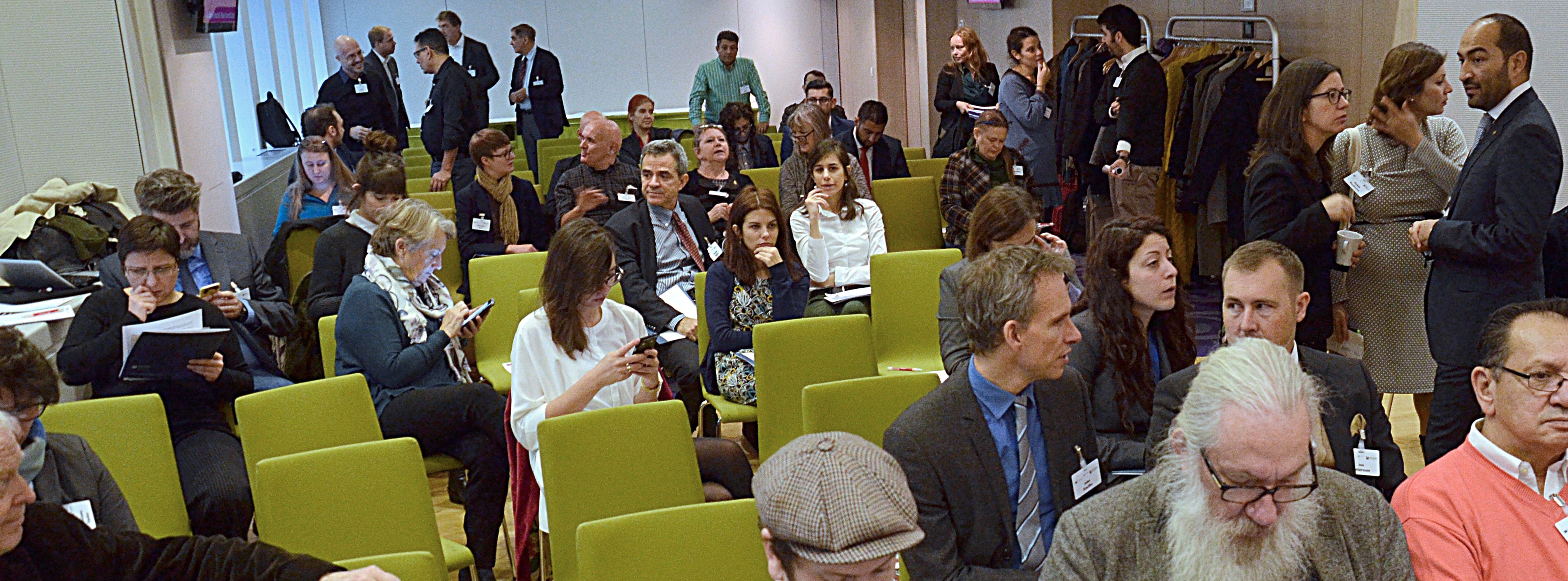RCC participation at the event “Which steps towards European policies against anti-Gypsyism”
- 15 Nov 2016
- News

RCC participation at at the event “Wich steps towards European policies against anti-Gypsyism” (Photo: Louise Schmidt for the Open Society Foundations)
Ms Aleksandra BOJADJIEVA, Policy Expert of the Regional Cooperation Council’s Roma Integration 2020 Action Team, participated at the event titled ‘Which steps towards European policies against anti-Gypsyism?.’ The event was held on 15 November 2016 in Brussels, and was organized by the Open Society Foundations in cooperation with the European Commission and the Federal Foreign Office of Germany under the moto Respect for Roma. Regional Cooperation Councils Liaison Office in Brussels also participated at the event with two representatives.
The event brought together some 50 participants including Roma and pro-Roma civil society and academia representatives, officials from various EU Member States, as well as representatives of the European Commission. The objective of the event was to encourage policy makers in the EU and its Member States to step up their efforts in combating anti-Gypsyism.
At the opening session Mr Andrzej MIRGA noted historical developments leading to the stage of anti-Gypsyism nowadays, including the newest developments in politics. Ms Nicola GILHOFF of the German Federal Foreign Office added to the notions of historic persecutions and actual stigma and marginalization. Ms Dijana PAVLOVIC spoke of her personal experience as Romani women, activist in Italy, characterized by verbal abuse and violence growing into physical violence even towards her non Roma husband.
The second part of the meeting, chaired by Mr Zeljko JOVANOVIC, looked at possibilities for joint European policy against anti-Gypsyism. Mr Michael ROTH of the German Federal Foreign Office and Mr Sandro GOZI of the Italy’s Prime Minister Office spoke about the political struggles to reverse attitudes towards Roma in the society, proposing to start by sensitising the immediate colleagues, friends and family. Mr Francisco FONSECA MORILLO presented the legal, financial and coordination mechanisms, including infringement procedures, established within the EC to combat racism.
Practical examples of initiatives against anti-Gypsyism were presented during the next session chaired by Ms Nicoleta BITU. Mr Thomas HAMMARBERG spoke about the State Committees against Anti-Gypsyism established in Sweden and Norway, which should be followed as good examples in other Member States (and enlargement countries). Ms Soraya POST talked about initiatives undertaken within the European Parliament with some success, although challenged by strong and growing opposition. Mr Romani ROSE spoke about the internal organization of Roma communities against anti-Gypsyism, including by collecting evidence and publically presenting historical facts.
The following session divided participants in two groups. One of the parallel sessions looked at existing practices in educating state employees and multipliers against bias regulation and practice, moderated by Ms Miriam KAROLY. Ms Robin SCLAFANI presented the work of the Jewish organization CEJI and urged to unity in combating biased and hatred motivated ideas and doings. Mr Pedro AGUILERA SANCEZ presented the process of action planning of strategy against anti-Gypsyism in Barcelona. Ms Andrea FRYDRYCHOVA presented on the so called experiential education training of police officers against anti-Gypsyism.
Mr Iulius ROSTAS chaired the session where Ms Gabriela HRABANOVA presented the work done by the Alliance against Anti-Gypsyism to define the concept.
Roma Integration 2020 is planning a regional workshop on non-discrimination and anti-Gypsyism in December 2017.






